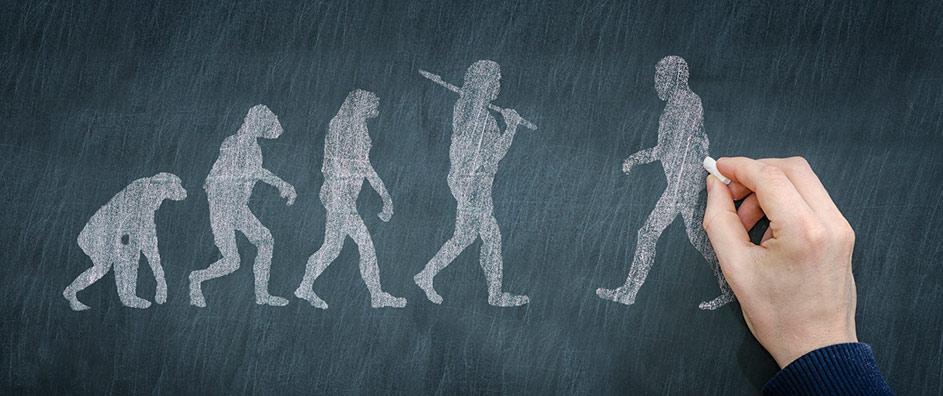In an increasingly interconnected world, the notion of collective maturity poses both challenges and opportunities for humanity. Bahá’í teachings, with their emphasis on unity and spiritual development, offer profound insights into what it means to approach this collective maturity. This discourse invites us to ponder a pivotal question: Are we ready to embrace the shifts in perspective that such maturity entails?
Collective maturity, underpinned by the principles of the Bahá’í Faith, transcends mere individual development; it encompasses the evolution of societies at large. This evolution hinges upon a fundamental understanding of humanity’s interconnectedness and the realization that collective progress is an integral part of spiritual ascendance. As we navigate the complexities of modern existence, recognizing our shared destiny becomes paramount.
The first aspect to consider in our exploration of collective maturity is the shifting paradigms that accompany it. The Bahá’í teachings urge us to eschew outdated notions of exclusivity and segregation. As we reassess our beliefs and values, we are invited to contemplate the intricate tapestry of human experience. What if we could radically redefine our understanding of community? In a world that often celebrates individualism, the call to collective responsibility emerges as a transformative ethos.
This shift requires an awakening to the potential that lies within each individual to contribute to a greater whole. Engaging with the principles of consultation, for instance, encourages collaborative decision-making, wherein diverse perspectives converge to yield innovative solutions. Are we prepared to abandon entrenched hierarchies in favor of egalitarian discourse? Such a readiness necessitates vulnerability and an openness to learn from one another, thereby fostering environments that cultivate mutual respect and understanding.
Moreover, the tenets of justice and equity are central to the Bahá’í vision of collective maturity. These ideals challenge us to confront systemic inequities that pervade our societies. A pertinent inquiry emerges: How can we collectively strive toward a vision of justice that is inclusive of all voices? Embracing diversity is not merely an act of tolerance; it is a commitment to embracing the richness of human experience. The Bahá’í teachings emphasize the importance of recognizing the inherent worth and dignity of every person, thereby fostering a sense of belonging and shared purpose.
As we grapple with the notion of collective maturity, we must also reflect on the role of education in this transformative journey. Educational endeavors are not solely about the dissemination of knowledge; they are avenues through which individuals can awaken to their potential as agents of change. The Bahá’í teachings advocate for the education of all individuals, regardless of gender or socioeconomic status. In pursuing a holistic education that nourishes the mind, body, and spirit, we pave the way for a society in which all members are empowered to participate meaningfully.
Yet, the road to collective maturity is fraught with challenges. Resistance to change, fear of the unknown, and deeply ingrained prejudices often hinder our progress. The question before us becomes: How do we transcend these obstacles? The Bahá’í approach emphasizes the importance of fostering a spirit of unity while simultaneously being unflinching in our commitment to addressing injustices. This duality demands courage and perseverance, as we navigate the tension between maintaining unity and advocating for social transformation.
Mindfulness is another crucial element that emerges in the conversation about collective maturity. In an age characterized by rapid information exchange and relentless connectivity, cultivating a mindful awareness of our thoughts, actions, and their consequences can lead to more intentional living. Engaging with our communities through a mindful lens allows us to deepen our understanding of our interconnectedness and recognize our shared responsibility toward one another.
Furthermore, as we venture toward collective maturity, it is essential to acknowledge the spiritual dimension of human existence. The Bahá’í teachings remind us that true maturity extends beyond the material realm; it encompasses our relationship with the Divine and our quest for spiritual fulfillment. This spiritual awakening is not a solitary endeavor; rather, it thrives in the context of community. The act of coming together in shared prayer, service, and reflection engenders a collective consciousness that elevates our pursuits and galvanizes our efforts toward common goals.
Ultimately, approaching collective maturity necessitates a profound shift in our collective consciousness. We are invited to envision a future characterized by collaboration, equity, and spiritual growth. The question looms: Are we ready to step away from self-imposed limitations and embrace a new paradigm? As we engage with the complexities of our time, let us remain steadfast in our quest for understanding, compassion, and unity. Each small action, every change in perspective, contributes to the larger tapestry of human progress, weaving together a narrative of hope and possibility.
In conclusion, the path toward collective maturity is not devoid of obstacles, yet it is rich with opportunities for transformation. The promises of the Bahá’í teachings beckon us to rethink our approaches to community, justice, education, and spirituality. As we stand on the precipice of change, let us embrace the challenge with open hearts and minds. The readiness to embark on this journey may very well define our collective legacy.
